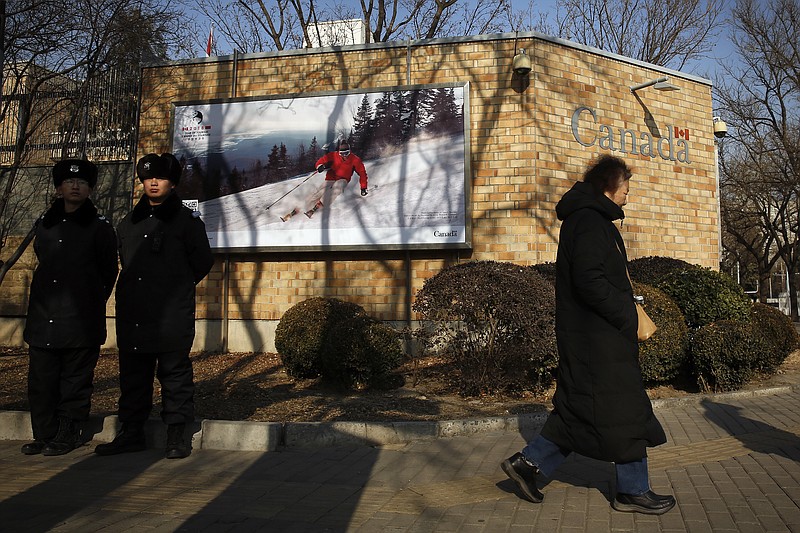WASHINGTON (AP) — By detaining two Canadians in an apparent act of retaliation, China is looking like the country its harshest critics said it is: one unbound by the laws, rules and procedures that govern other major industrial nations.
Canada’s arrest of a top Chinese technology executive at the request of the United States has set off a diplomatic furor with Beijing.
And the way the countries have acted in the controversy draws a clear distinction between their political and legal systems — at a time when the United States, Canada and other advanced economies are rethinking the way they do business with China.
Canada gave Huawei chief financial officer Meng Wanzhou — daughter of the telecom giant’s founder — three days of public hearings before releasing her on bail to the cheers of members of Vancouver’s large Chinese community who came to court to show their support.
By contrast, the Chinese secretly detained two Canadians on vague suspicions of “engaging in activities that endanger the national security” of China. Beijing didn’t allow Canadian officials to see Michael Kovrig, a former diplomat in China, for four days. And it has yet to allow them access to detained entrepreneur Michael Spavor.
On Friday, U.S. Secretary of State Mike Pompeo spoke out against the arrests and called on China to release them. “The unlawful detention of two Canadian citizens is unacceptable. They ought to be returned,” Pompeo said after meeting with his Canadian counterpart.
“What does this say to Canadians?” David Mulroney, Canada’s former ambassador to China, said of China’s move. “It says to Canadians that China isn’t a country that respects the rule of law. This means that when we engage China, we do it carefully and probably in a limited way.”
“They are trying to teach us a lesson, and I don’t think we should put up with it,” agreed Robert Bothwell, a University of Toronto historian. “Sadly, we have to diminish contact with China.”
Bothwell concedes disengaging with China “obviously has economic implications.” Like consumers in the United States and elsewhere, Canadians have come to rely on cheap imports from China — everything from sneakers to electronics.
The Huawei clash comes at a tense time. The United States has slapped tariffs on $250 billion worth of Chinese exports to punish Beijing for its sharp-elbowed drive to challenge American technological dominance.
The U.S. said China uses predatory tactics, including outright cybertheft and coercing U.S. and other foreign countries into handing over their technology as the price of admission to the Chinese market. China has lashed back with retaliatory tariffs on $110 billion in U.S. goods.
Over dinner in Buenos Aires, Argentina, Presidents Donald Trump and Xi Jinping agreed to a 90-day cease-fire in the trade dispute, buying time to resolve their differences.
In a sign of progress, China on Friday announced a 90-day suspension of planned tariff hikes on U.S. cars, trucks and auto parts. And China has resumed buying American soybeans, which had plunged as trade tensions worsened.
The Dec. 1 Trump-Xi meeting came on the same day Canadian officials, acting at the request of the U.S., detained Meng during a layover at the Vancouver airport. Washington wants her extradited to the U.S. to face bank fraud charges. The U.S. accuses Huawei of using a Hong Kong shell company to deceive banks and do business with Iran in violation of U.S. sanctions.
On Monday, China took the two Canadians into custody.
“They’re innocent. She’s probably guilty of fraud. So in that sense, China has arrested innocent people, or relatively innocent people, as a way to pressure Canada to let someone who may be guilty of a crime go free,” said David Zweig, a Canadian political scientist at the Hong Kong University of Science and Technology and director of its Center on China’s Transnational Relations.
But, Zweig noted, “the Americans moved first” in issuing the warrant for Meng’s arrest and therefore must share blame for the fallout.
And Trump may have surrendered the moral high ground by saying he would consider intervening in Meng’s case if it would help clinch a good trade deal with Beijing. His comments in an interview with Reuters suggested that he might view Meng as a political pawn.

